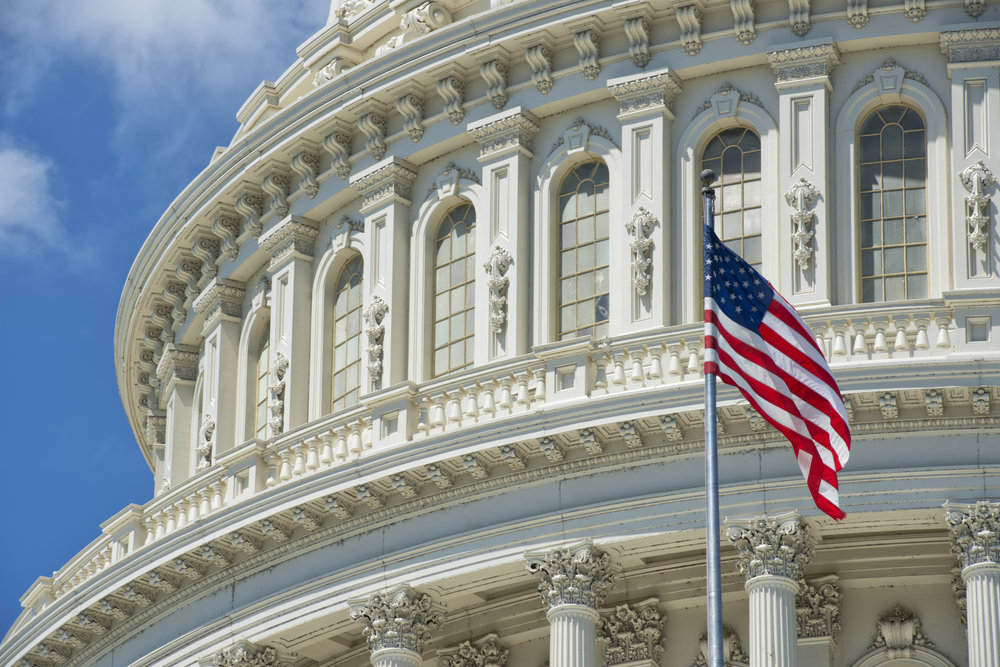
Applying the Biden-Harris Administration's National Cybersecurity Strategy to your organization in five steps
As cyber threats continue to evolve and grow, it is increasingly clear that a coordinated and comprehensive approach to cybersecurity is necessary. Governments around the world have recognized the need for national cybersecurity strategies to protect their citizens, businesses, and critical infrastructure. In this article, we will explore the importance of a national cybersecurity strategy from the perspective of a cyber threat intelligence team.
The increasing frequency and severity of cyberattacks have highlighted the importance of having a comprehensive national cybersecurity strategy. Cyberattacks can result in the loss of sensitive data, disruption of critical services, financial losses, reputational damage, and even loss of life. A national cybersecurity strategy is essential to protect against cyber threats, safeguard national security, and maintain economic stability. It provides a framework for coordinating and prioritizing efforts to address cyber threats, promotes information sharing and collaboration, and enables rapid response to incidents.

21 percent of government workers don't care if their organization is hacked
With 70 percent of government workers reporting that they work virtually at least some of the time, a new survey shows some worrying trends.
The report from Ivanti finds five percent of government workers have fallen victim to a phishing attempt. However, 34 percent don't believe their actions impact their organization's ability to stay safe.

Happy Data Privacy/Data Protection day
These days no important topic is worthy of the name if it doesn't have a day devoted to it. Today (January 28) it's the turn of data privacy -- or data protection depending on who you talk to -- to take its turn in the spotlight.
As organizations gather ever more data, concerns around how it is stored and used have grown which has led to legislators taking an interest too.

Ransomware: The greatest threat to state and local governments today
Historically, government organizations have faced fewer attacks than their peers in other industries, particularly education and healthcare. But state and local governments have become a popular target for bad actors over the last two years -- nearly half of all ransomware in 2020 targeted municipalities. And in 2021, almost 60 percent of state and local governments faced a ransomware attack, up from just one-third of government organizations the year before.
The trend toward more frequent government ransomware attacks is concerning for several reasons. First and foremost, governments provide constituents with critical, everyday infrastructure, which makes ransomware-related outages costly and damaging. This incentivizes government IT leaders to address ransomware breaches quickly by paying the ransom. Second, and equally important, many state and local governments continue to use legacy hardware for their IT infrastructure. Without cloud-based protections and modernized cybersecurity protocols, many state and local governments face an uphill battle when it comes to addressing ransomware.

Public sector agencies struggle with cybersecurity intelligence data
A new study from Splunk, in collaboration with Foundry, finds that 49 percent of public sector agencies struggle to leverage data to detect and prevent cybersecurity threats.
The report shows 50 percent of the sector has issues leveraging data to inform cybersecurity decisions, and 56 percent of public sector agencies have difficulties leveraging data to mitigate and recover from cybersecurity incidents.

Federal agencies continue to confront cloud migration challenges a decade on
Most U.S. federal agencies began the process of moving their data to cloud-based services about ten years ago. In 2011, the White House issued their Cloud-First strategy, requiring agencies to evaluate safe and secure cloud technologies. This marked the first step taken to accelerate cloud adoption amongst government agencies in a bid to help reduce costs and improve the efficiency of services provided to citizens.
Since then, many agencies have begun moving more and more of their infrastructure to cloud platforms. Recent research revealed that nearly two-thirds of federal IT leaders are either using or starting to use the cloud for mission critical applications. However, despite this uptick in adoption, many federal agencies continue to grapple with cloud migration challenges.

How digital IDs are set to shake up the way we access services [Q&A]
Around the world governments are increasingly keen on introducing digital identity systems for their citizens. These are seen as a secure way for people to access government and other services as these move online.
We spoke with Philipp Pointner, chief of digital identity at Jumio, to find out more about digital ID and its implications for security and privacy.

Federal cybersecurity leaders are struggling to protect information
A new survey of 150 federal cybersecurity leaders finds that 73 percent of respondents feel a lack of foundational data protection efforts puts their agency at risk.
In addition the research, from data protection provider Zettaset, shows 77 percent say that siloed systems that lack visibility make it difficult to properly protect critical assets. It's not surprising then that 57 percent report experiencing multiple data breaches over the past two years.

PayPal faces UK backlash over account closures
As we reported last week, PayPal has cancelled the accounts of a number of campaigning organizations in the UK, citing its Acceptable Use Policy but without providing a specific reason.
On Friday The Times reported that the fintech giant was poised to back down in the case of parents' group UsForThem, which campaigned for schools to be kept open during the pandemic.

Nextcloud works with governments to create MS Office rival for the EU
The European Union's relationship with big tech companies has long been a fractious one. Its Digital Markets Act is aimed at reigning in their power and, among other things, it's credited with forcing Apple to adopt the USB-C standard.
In the latest development a number of European governments are working with Nextcloud to create a 'digitally sovereign' office platform, the aim being to help governments regain their independence from a small number of tech giants and allow them to confidently roll out digitization efforts.

More than a third of UK government tech workers still not using open source
The UK government committed itself to using more open source software in its Technology Code of Practice published in 2021, but 38 percent of government tech workers in a new study say they still don't use any open source software in their department.
On a more positive note the research from data management company Aiven shows 71 percent of UK government tech workers report the Government is now using more open source software compared to five years ago.

New UK data laws set to make annoying cookie pop-ups crumble
Website pop-ups asking you to consent to cookies have become a regular -- if irritating -- feature for European internet users since the introduction of GDPR in 2018.
As part of a post Brexit shake up of data law the UK government has announced that its Data Reform Bill will cut down on the number of times these 'user consent' boxes will be shown.

Twitter Facebook LinkedIn Spy
How do you know if you're being targeted by an agent of a foreign power? It used to be easy, as soon as he ordered red wine with his fish* you knew he wasn't the right sort of chap.
Nowadays when nation states are more likely to befriend you on social media in order to try to steal sensitive data you can no longer rely on the wine list to help you spot a bad guy.

Why moving to the cloud is right for government agencies
Over the last few years in enterprise IT, the fight between on-premise software and cloud services has been dominating tech conversations. Today, many businesses realize we will never return to the in-office routine we experienced before the pandemic. As remote and hybrid work becomes the norm, constituents now expect to be communicated through various channels, including mobile.
The introduction of mobile-focused operations showcases the need for technology system improvements within the public sector.

Open source security plan aims to deliver on development, patching and more
White House officials, The Linux Foundation, OpenSSF and 37 private sector tech companies have announced a 10-point open source and software supply chain mobilization plan and $150 million of funding over two years.
At a summit meeting yesterday several participating organizations came together to collectively pledge an initial tranche of funding towards implementation of the plan. Those companies are Amazon, Ericsson, Google, Intel, Microsoft, and VMWare, pledging over $30M.
